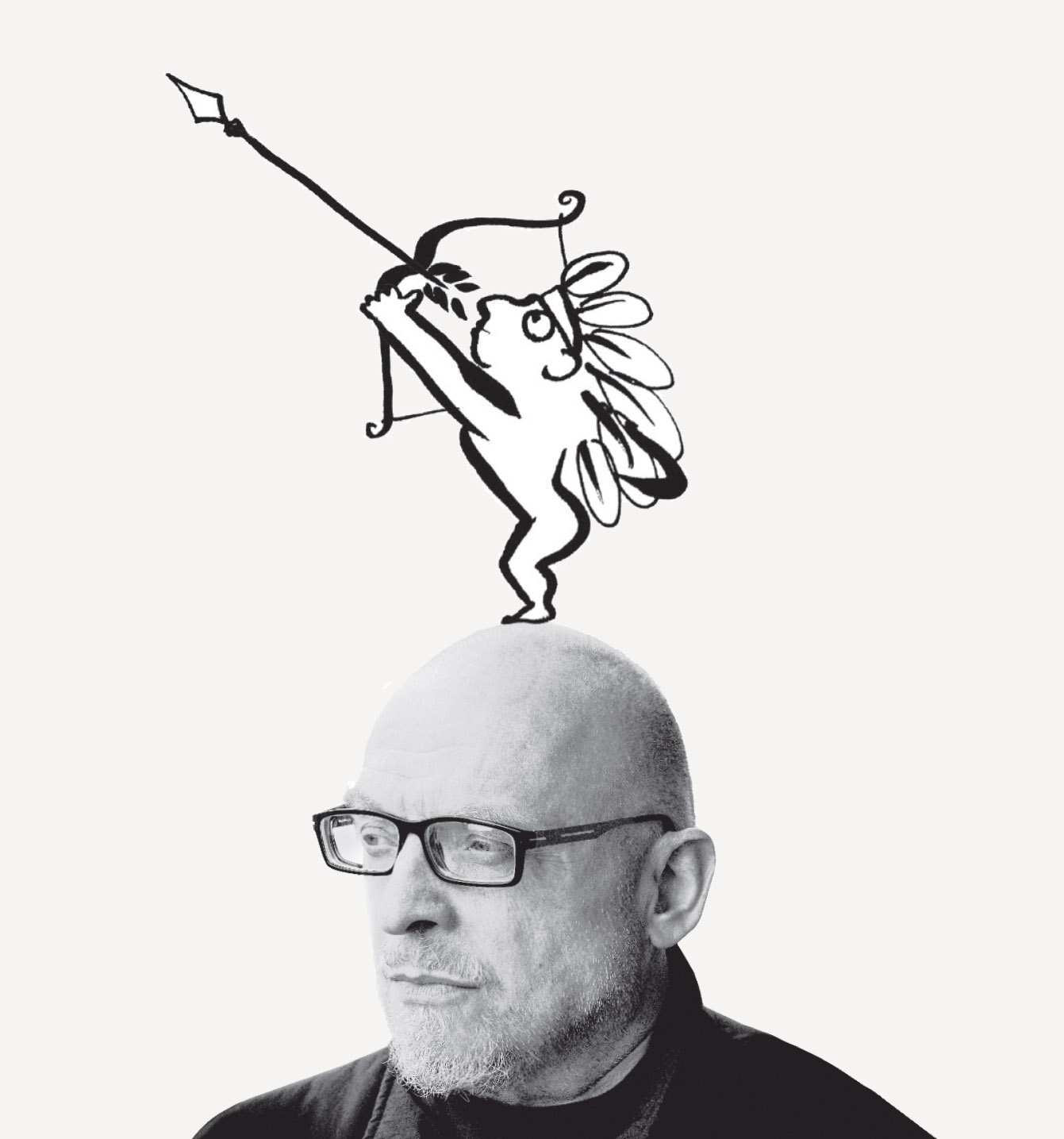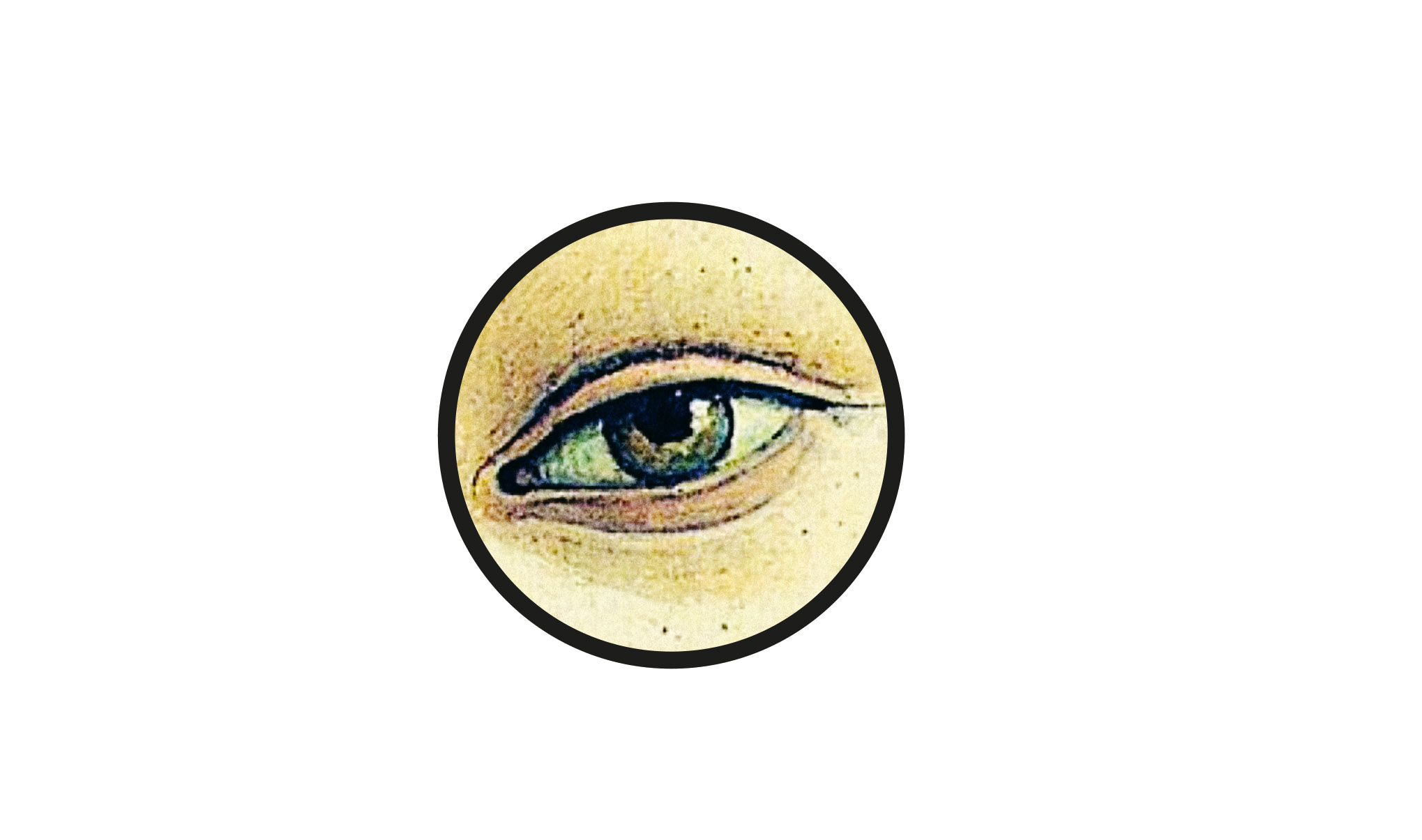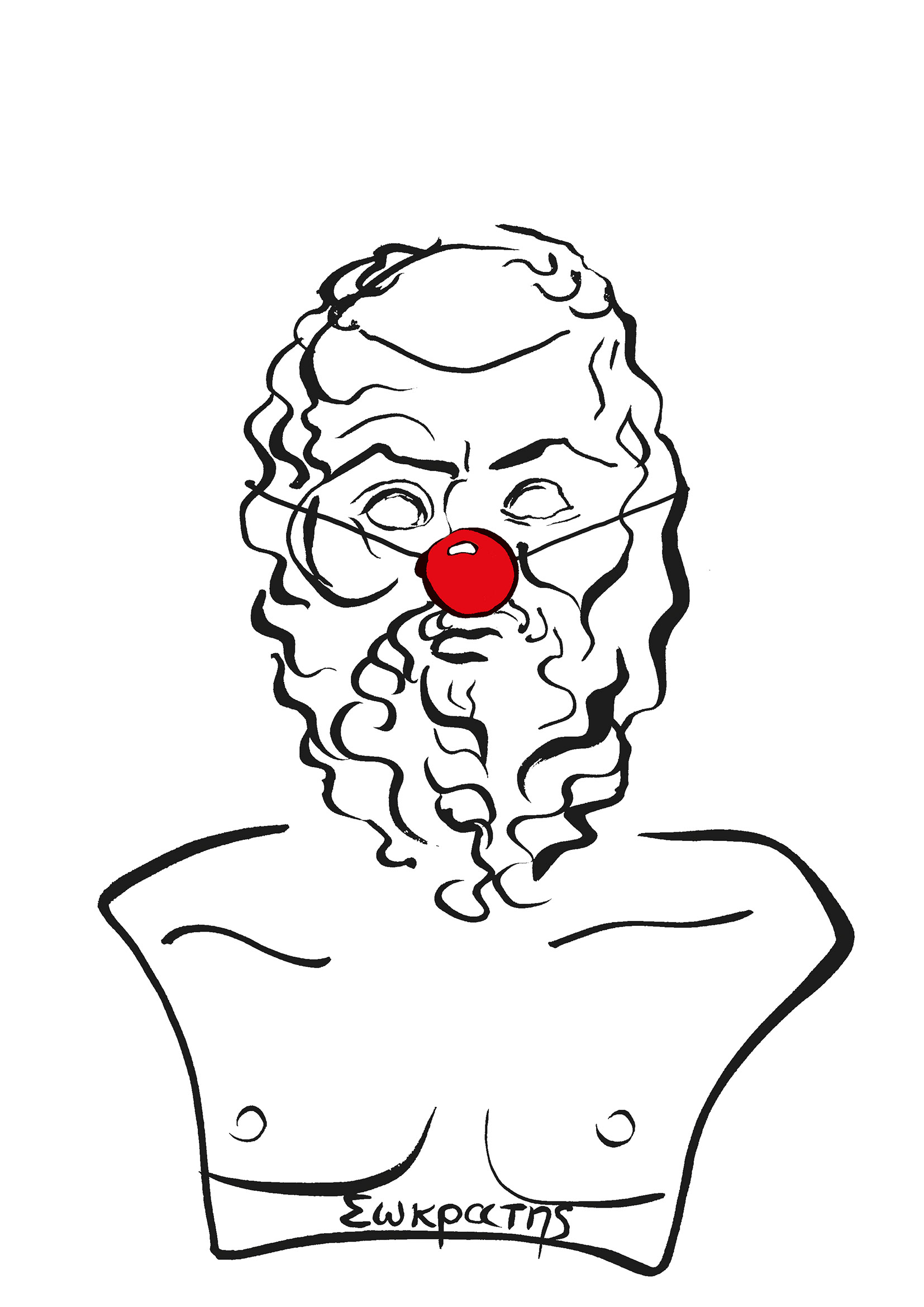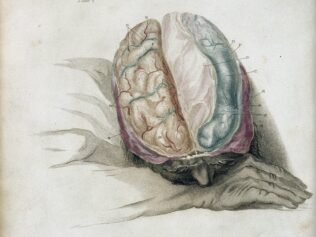
Thinking is like sex: we have both too much and too little of it, says Professor Bartłomiej Dobroczyński. He also encourages us to dance – to Mahler and the Ramones – giving our brains a rest from the mental chatter.
Katarzyna Sroczyńska: Do you think a lot?
Bartłomiej Dobroczyński: Too much. On the one hand, thinking is one of the most fascinating inventions in the evolution of the cosmos – whatever we say, the many colours of the world without thought have been supplemented by mental creation. And humanity has achieved a lot thanks to this invention. But on the other hand, it has negative consequences: it is evident that a component of thinking is its destructive function. No other animal has destroyed the planet or other animals as much as humans, especially our civilization. For example, Native Americans believe that they are the guardians and conservators of Mother Earth; they see evil in the white man and even say that their task is to protect the white man from himself. In general, the system we came up with when we left the era of hunters and gatherers – the happiest era in human history – and switched to agriculture, was the original sin.
The beginning of the end.
And it’s been going downhill ever since. It’s clear that things are bad these days. Pygmy owls and earthworms don’t stir things up the way a thinking human does. There’s also another aspect to this situation – again, I’ll refer to my beloved native people of North America – they often refer to white people as ‘big heads’. We speak of intellectuals as ‘eggheads’, and that’s not a compliment. Native Americans have noticed intuitively – rightly, in my opinion – that we employ thinking for too many things. Some scientific hypotheses say that humans as a species place too much stress on thinking, that we use our brains too much. This kind of functioning has many negative effects, even illness, schizophrenia being at the forefront. To use an engineering metaphor, we’re driving overheated brains. We think all the time, non-stop.
Moreover, we humans believe that when we’re thinking, we know that we’re thinking, and if we’re not thinking, then we’re not thinking. My favourite lesbian guitarist from Australia, Courtney Barnett, once recorded an album called Sometimes I Sit and Think, and Sometimes I Just Sit. If she could prove that it was really possible, I’d willingly become her student.
You don’t believe her?
No, I don’t. In my research, I’m interested in what’s hidden and unconscious in the psyche. And now I’ll tell you a little thing that’s always worth mentioning. We usually associate the unconscious with Freud. I really like Sigmund Freud, but this is misappropriation. Both before and since Freud’s, there have been a great many concepts of unconsciousness – different, often very disparate. Interesting concepts were arising in Poland in the 19th century, before Freud was even born, not to mention in the rest of the world. Freud is also credited with the metaphor of the mind as an iceberg, although this was thought up by the German scholar Gustav Theodor Fechner. In short, it points to the mind being made up of an explicit part, which is accessible to us, and an implicit part, which is inaccessible. The ratio between the sizes of the two parts was supposed to be shocking: like an iceberg, we can see one eighth, and seven eighths are hidden. In his book Strangers to Ourselves, psychologist Timothy Wilson stated that Freud was naive to think that so much was accessible. According to what we know today, if we stick with the iceberg metaphor, the conscious part is barely a snowball at the very top. All the rest, 99%, is unconscious.
We’re not aware of 99% of our thoughts?
Everything: thoughts, feelings, plans. Before humans acquired language and consciousness, we had been performing complex cognitive processes without consciousness for hundreds of thousands of years. And that’s still how it is. We’re like a jumbo jet flying on autopilot. There’s even an article called The Unbearable Automaticy of Being, perversely referring to Milan Kundera. Consciousness is only activated when something is not working. To return to Courtney Barnett, this means that our brain is hammering away at full speed, and we don’t even realize it. It is constantly performing millions of operations, processing information, some of which it provides us with reports on, although in most cases it doesn’t. Admittedly, contemporary mainstream psychology doesn’t see unconsciousness as so radically related to dangerous things as Freud did, but it’s not a clear-cut issue: many of these processes don’t threaten us in the Freudian sense, but in a different way.
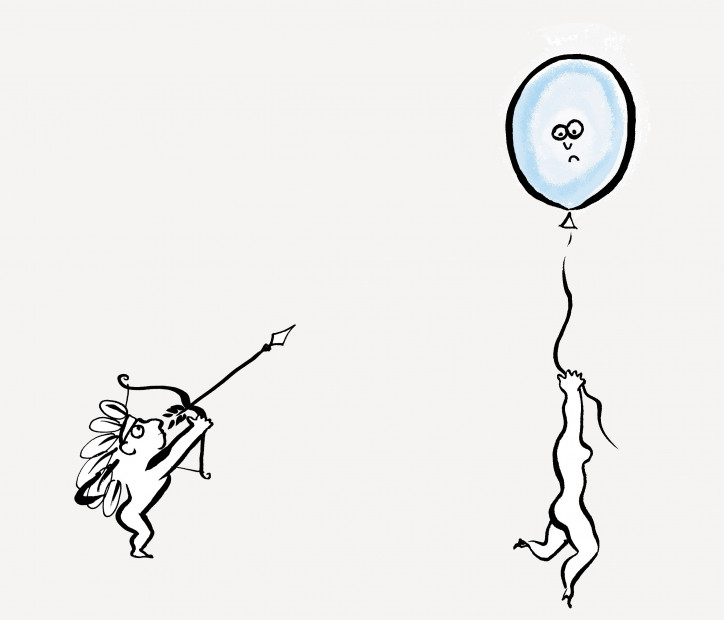
How’s that?
In the most straightforward way. It’s called evolutionary inertia. Our hidden features include not only information processing procedures, but also, for example, preferences. And we don’t realize that those preferences are mercilessly exploited, for example, by the gangsters of international corporations. Let’s take a 12-year-old, blindfold him and give him Coca-Cola and Pepsi to drink in a blind test.
I guess he couldn’t tell one from the other.
No, he’ll usually choose Pepsi. Because it’s sweeter. And if this 12-year-old is given homemade chips fried in vegetable oil and fries from McDonald’s? He’ll choose the latter because they’re fattier, apparently fried in beef tallow. Where do these predilections come from? Once upon a time in the savannah, coming across a tree with lots of sweet fruit or something quite fatty was so rare that it switched on the ‘eat as much as you can’ application.
But what you’re talking about is a lack of thinking, rather than thinking.
Because we’re just getting warmed up. We have an evolutionary past that we can’t disregard. We’ve told ourselves a few truths about how we are destructive and how thinking leads us to overheat. We’ll get to the point in a moment, but first let us note how a university employee or a newspaper editor will come to realize that, regardless of what they do, a verbalized thought process is going on in their head, more often than someone who has a completely different job. So we can also programme ourselves to think more intensively on the unconscious level, let’s say. Thinking isn’t equally strongly stimulated for everyone. That’s natural. If someone is a bird watcher and it’s something they like to do, their attention is more easily drawn to birds than other people’s.
Susan Sontag said that thought was her form of feeling.
Susan Sontag was a very wise person. But going back to where we started, thinking is like sex: we have both too much and too little of it. That is, there’s too much of certain forms and too little of others. In general, I think there isn’t enough rational, high-quality thinking. Too much of our thinking is detached from reality, habitual, which in Buddhism is known as mental chatter. We use thinking in many situations where it only gets in the way.
What situations are those?
We overestimate thinking as a tool for relating to the world at the expense of the body and the senses. And sometimes you have to follow impulse, feeling. Choose something that’s almost irrational. Sometimes thinking interferes with perception. I really like David Lynch, he’s one of the greatest artists on Earth. I cried when the third and latest season of Twin Peaks ended. I watched it three times, I could watch it forever. Although, as a matter of fact, I can’t explain why it makes such an impression on me. It’s like top-notch erotica. You follow all sorts of impulses that make you happy, although if someone asked why those things in particular, you wouldn’t know. It’s just as well.
No need to think about an explanation, just enjoy?
For me, the more of those things, the better. It’s like rock and roll. Music is the most important thing for me. I’m sometimes asked what two albums I’d take to a desert island. I usually say Mahler’s “The Song of the Earth” and the Ramones’ first album. For most people who know about music, this combination is unbearable.
Mahler alone is unbearable for many people.
I could choose another composer: Bruckner or Monteverdi. It’s just a contrast to a certain advanced, sophisticated musical formula that consists of, excuse the expression, grabbing your balls. In a fit of genius, Joey Ramone said: “We had access to the fountain of youth”. I’m over sixty, but when I listen to them, I’m rolling in the aisles, I’m on a happiness high. Why? Because they take me, if it doesn’t sound too bad, from behind – they bypass my intellectual processes, my thinking. Of course, I have to allow it. They say rock and roll is a gift from the black man to the white man to help solve the problem of the relationship between his soul and his body. This music activates my body in such a way that it brings relief to the consciousness, which kind of dissolves. When I return to my body, my head isn’t so tight, and my thoughts are fewer. Running or riding a scooter (not an electric one!) works in a similar way.
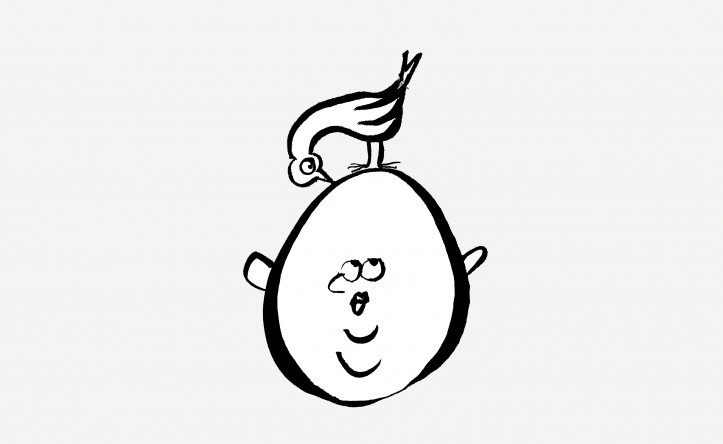
Are those your favourite ways of thinking less?
There are many other activities that bring the mind back to the body, hence the popularity of meditation, jogging, various sports, yoga and tai chi. We have a problem, because in our culture the soul is completely detached from the body.
Walking in the woods has been recommended as a remedy lately.
This recommendation is also the result of thinking. Of course, for a certain number of people, walking can be salutary, for others it will be neutral, but for others it’s just an annoyance. A tension exists between universality and uniqueness. The fact that everyone has the same body doesn’t mean that if we both catch a cold, the same remedies should be used for both of us. A good doctor can say that antibiotics are needed for one person and not for another. Giuseppe Tucci, an expert in Tibetan Buddhism, says that a Buddhist has the same approach to the truth that a good doctor has to the flu. Well, a good doctor knows that the flu doesn’t exist. There is no flu, there are flu germs and various people who are ill with the flu. There are no woods either, nor walks in the woods. It’s a message constructed so that people can communicate.
I’m here on behalf of someone beleaguered by thinking too much. What should they do to think less?
I will answer in a way that will infuriate you. I don’t even know what someone who complains of thinking too much means. Perhaps they feel too much? All I know is that the answer cannot be sought on the outside, you need to look within yourself. All questions about individual fate inevitably turn into a question about identity, about who I am. At the entrance to the oracle of Delphi it was written: “know thyself”. The ancient sages and modern science agree on one thing: man does not know himself.
First, look for situations in your life where thinking yields. Remember those times when you thought less and you felt good about it. Because there are many times when we have thought less and felt bad about it, such as during a job interview.
And again, the problem is divided. On the one hand, this is a good path, but on the other hand part of me says: but we will not know, because no one can see this for themselves, someone must show them from the outside. Therefore, the best spiritual development paths come from many generations of teachers who pass on a certain experience to each other. Not knowledge, not beliefs, but experience.
The experience of many suggests that thinking can be turned off with the help of alcohol.
I lived under this illusion for many years. I haven’t drunk for 25 years, but alcohol used to be great for turning off my thoughts. Except it was stupid. From the point of view of spiritual schools, man’s biggest problem is his seclusion and loneliness. Man experiences himself in the way of Pascal: he feels that the cosmos is crushing him, but the cosmos doesn’t know it. All spiritually wise schools, including therapeutic ones, say that the only chance not to fall into nihilism is to connect individuality to something bigger than us. Why do people get excited about being at concerts? At matches? In a crowd? Because that’s where ‘I’ dissolves. For a moment, I lose my individuality, and it’s nice. I abandon myself to something bigger than me – an idea, family, ecology – and this frees me up from thinking. I am relieved.
Thinking can be divided into harmful and useful. Useful solves problems, making myself and others better. Harmful drowns me, destroys me. Oriental spiritualities have a simple formula – the point is not that the mind controls you, but that you control the mind. So you can say that harmful thinking is thinking in which I am ‘thought’, my thoughts think me and I can’t get rid of them.
The way to silence this harmful type of thinking, for some, will be to go to a forest – for others, to go to a hospice and take care of cancer patients. For others, ecstatic dancing. I repeat: know thyself. And that doesn’t mean thinking about yourself. There’s only one way to get to know yourself – through action. You have to try.
In Ottessa Moshfegh’s novel My Year of Rest and Relaxation, the main character decides to sleep for 12 months straight in order to think and feel less.
I’m not convinced that someone would be happy after something like that. In the end, we wake up and we need to do something with ourselves. Of course, when we fall into a loop of thinking or negative feelings, it’s hard to get out. We need to know what will pull us out of it, but the biggest problem is to force yourself to do that and then to persevere. Give something a chance and really test it out. Someone who has had 30 relationships in two years doesn’t know about human relationships. Someone who has been in one relationship for 30 years knows better. Because that relationship has its dynamics and its fluctuations. Often, something starts working after a very long time. There are many things to be learnt. When I went to Biebrza National Park for the first time with my son, many years ago, we went up on a platform, took out our binoculars and we’re saying: “There aren’t any birds.” The others roared with laughter. They said: “There are dozens, you just don’t know how to see them yet.” It can be the same with that walk in the woods or listening to music.
What do you like to think about?
I distinguish between my own harmful and harmless thinking. In the former, I am a victim injured by numerous beings that are hostile to me or underestimate me. And that is very bad thinking. But it’s good when my thoughts are floating about like a flying carpet: I’m doing something and they fall into different configurations. I watch them from a distance, I’m like a hunter who says: “That’s a nice thought, I’ll have it. I’ll make an article out of that one, a book out of that one, and I’ll tell someone about that one.”
When people say that they think too much, they often mean that they worry too much. We associate thinking with being sad and closed off. Some even speak of quiet despair. You mentioned music and the joy it brings you. As if it allows you to step outside yourself.
The word ‘ecstasy’ comes from a Greek word meaning ‘to step outside yourself’. The worst thing is being alone with yourself when you don’t have the right tools for that. Because when you have the tools, it’s a pleasure.
It’s nice to step outside yourself from time to time, but ecstasy doesn’t happen often. Everyday life and normality mean sadness and a head full of thoughts.
To some extent I can agree, but I know that doesn’t necessarily have to be the case. I know states of functioning differently long-term. You can avoid having sad thoughts, you can step outside yourself, but you must introduce discipline and abide by it. Take action and act persistently.
You might say that the nature of our lives, which most people don’t recognize, is the inhale and the exhale. I take and I give back. This pendular motion, whose dance is the perfect image. This is the basic model of the whole life process, we don’t know anything more perfect. Without it, we will die very quickly. And everything, at various levels, is the repetition of this. I cannot only take or only give, that would be to immobilize myself.
Only think or only not think.
Exactly. I have to be in this swing, rock and roll, the whole time. If I freeze – I’m done. Only in one direction – I’m done. Only in the other – I’m done. Can I dance without ever losing my rhythm? No. But maybe that quiet despair will be less, and there will be more moments when I’m in motion. The essence of life is movement.
Parts of this interview have been edited and condensed for clarity and brevity.
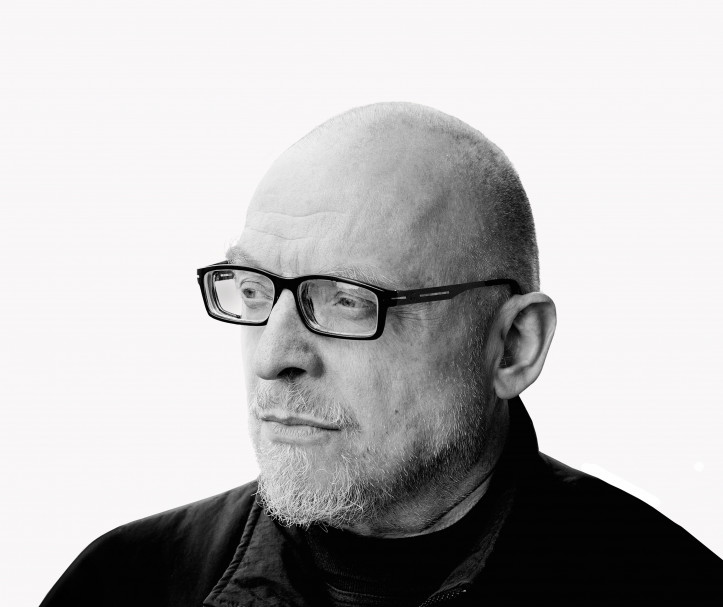
Bartłomiej Dobroczyński:
A psychologist and associate professor at the Jagiellonian University’s Institute of Psychology. He enjoys music and bird watching, and his professional interests include the history of psychology and alternative cultural movements. The author of many books, including The Trouble with Spirituality (Kłopoty z duchowością), Letters of the Profane. Between Psychology and Religion (Listy profana. Między psychologią a religią) and Narcissus’s Unhealed Wound (Niezabliźniona rana Narcyza, with Mira Marcinów).
Translated from the Polish by Kate Webster


